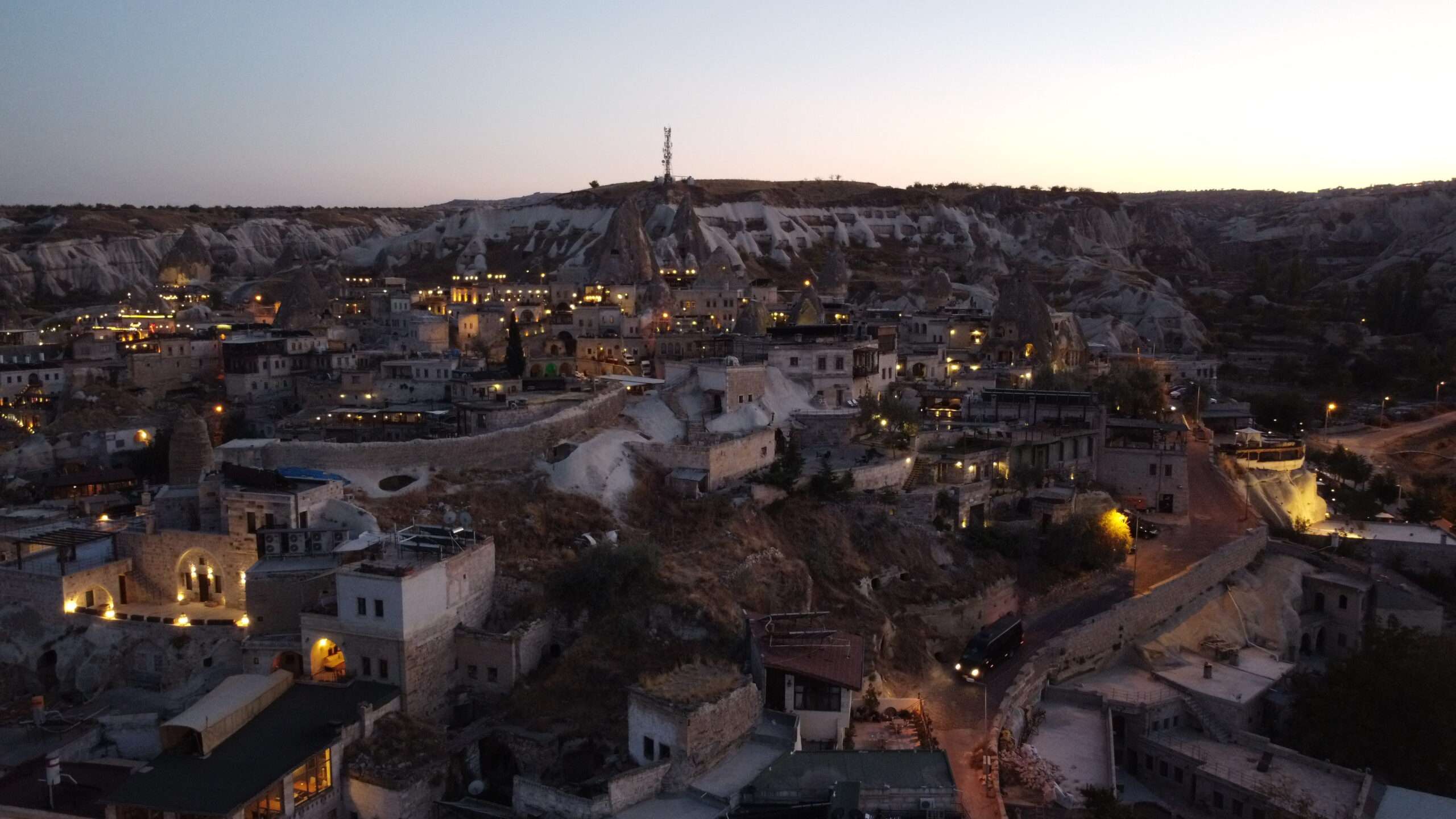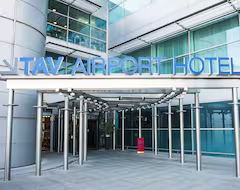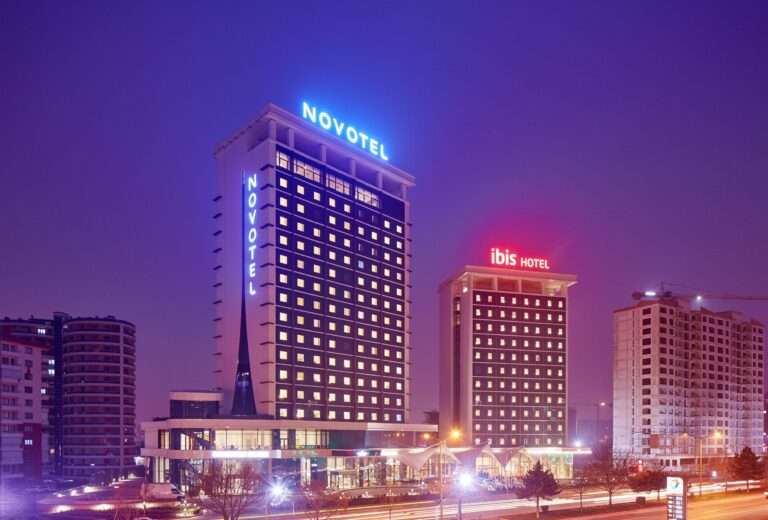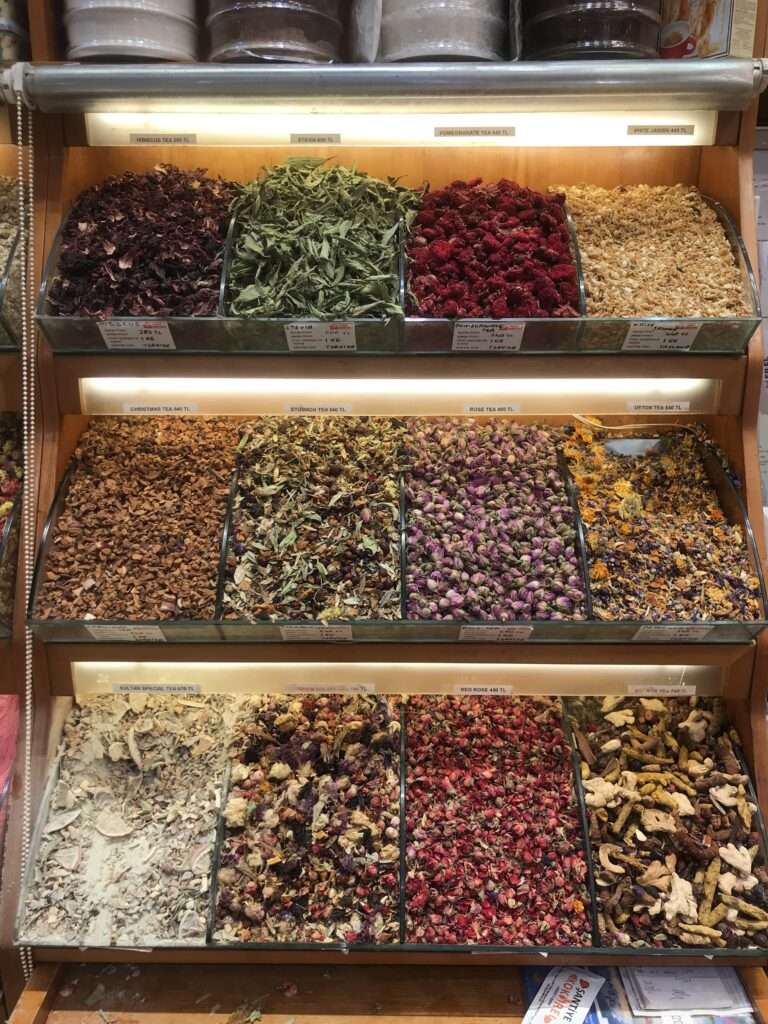I first fell in love with Turkey, or Türkiye as it’s known locally while visiting on a 90-day Tourist Visa. The people, culture, and beautiful beaches had me asking myself, “What if I could stay here just a little longer?” 90 days just wasn’t enough! The delicious food, the markets, and the Turkish hospitality had already helped me to make up my mind. I had to stay longer.
Discovering the Turkey Residence Permit
With my departure date getting closer, I started researching ways to extend my stay in Turkey. That’s when I discovered the Turkey Residence Permit. After speaking with some expats here in Turkey who had already gone through it themselves, I decided to start the process myself. Whether you’re an artist seeking inspiration, a digital nomad in search of a new base, or someone simply in love with Turkish Culture, the Türkiye Residence Permit is the key to unlocking your dreams. This document can transform a short visit into an extended stay, allowing you to immerse yourself in the Turkish way of life without the restraints of a tourist visa.
The Application Process
Here’s a step-by-step guide to help you navigate the residence permit application process:
- Figure Out Which Permit You Need: There are different permits for different needs—short-term, family, student, long-term. If you just want to extend your stay a bit, the short-term residence permit is likely your best bet.
- Get Your Documents Ready:
- A valid passport with a photocopy
- Four biometric photos
- Proof of financial stability (bank statements, proof of income)
- Health insurance valid in Turkey
- Proof of address in Turkey (rental agreement or property deed)
- Completed application form (available on the Turkish Ministry of Interior’s Directorate General of Migration Management website)
3. Apply Online: Head over to the official e-Ikamet residence website, fill out the form, and submit it. You’ll get an appointment date for the local Göç İdaresi office.
4. Attend Your Appointment: On the scheduled date, bring all your documents to the Göç İdaresi office. You’ll have an interview and submit your documents.
5. Pay the Fees: There are application fees and residence permit card fees that you’ll need to pay. The total amount varies depending on the type of permit and your nationality.
6. Wait for Approval: After submitting your application and attending your appointment, you’ll receive your residence permit card within a few weeks.
Living in Turkey: Tips and City Guides
Tips for Living in Turkey
- Learn Some Basic Turkish: While many Turks speak English, knowing basic Turkish can make your life a lot easier and more enjoyable.
- Get Involved Locally: Building connections with locals can provide invaluable support and make your stay less superficial.
- Stay Organized: Keep copies of all important documents and stay on top of any bureaucratic requirements to avoid any legal issues.
- Understand Local Customs: Familiarize yourself with Turkish customs and etiquette to integrate smoothly into the community.
Potential City Bases: Pros and Cons
Istanbul
- Pros: Vibrant cultural scene, historical sites, diverse neighborhoods, great public transportation.
- Cons: High cost of living, traffic congestion, and crowded areas.
Ankara
- Pros: Political and administrative hub, less crowded than Istanbul, rich cultural and historical sites.
- Cons: Less cosmopolitan than Istanbul, colder winters.
Izmir
- Pros: Coastal city with beautiful beaches, vibrant nightlife, more relaxed lifestyle.
- Cons: Less historical attractions compared to Istanbul, smaller expat community.
Antalya
- Pros: Stunning Blue Flag Mediterranean beaches, tourist-friendly, great climate.
- Cons: Can be very touristy, with fewer cultural events compared to larger cities.
Bursa
- Pros: Close to Istanbul, rich history, beautiful natural surroundings.
- Cons: Less international presence, can feel provincial compared to larger cities.
Getting Around in Turkey
Getting from point A to B in Turkey can be an adventure in itself. Here’s how to get around:
Public Transportation
- Buses: Extensive and reliable, both within cities and for intercity travel. Major cities have their own networks, and companies like Metro, Kamilkoç and Pamukkale operate intercity routes.
- Metro and Trams: Istanbul, Ankara, and Izmir have efficient metro systems. Trams are also a great way to get around, especially in Istanbul.
- Dolmuş: Shared minibuses that run fixed routes. They’re a convenient and economical option for local travel.
- Ferries: In Istanbul and along the coast, ferries are a scenic way to travel, especially between the European and Asian sides of Istanbul.
Taxis and Ride-Sharing
- Taxis: Widely available and relatively inexpensive compared to Western countries. Make sure the meter is running to avoid being overcharged. I also use Google Maps or Waze while in the taxi to make sure we are taking the best route.
- Ride-Sharing: Apps like BiTaksi and Uber operate in major cities, offering a modern and convenient way to get around.
Car Rentals
- Rental Agencies: Available at airports and city centers. Renting a car gives you the freedom to explore off-the-beaten-path destinations.
- Driving Tips: Turkish drivers can be aggressive. Familiarize yourself with local driving rules and be cautious, especially in city traffic.
Bicycles and Scooters
- Bike Rentals: In cities like Istanbul and Izmir, bike rental services are becoming more popular. Dedicated bike lanes and scenic routes make this a pleasant option.
- E-Scooters: Companies like Martı and BinBin offer electric scooter rentals in major cities. These are great for short distances and avoiding traffic.
Must-See Attractions in Turkey
Living in Turkey gives you the perfect opportunity to explore its incredible sights. Here are some must-see attractions:
- Hagia Sophia, Istanbul: This architectural wonder is a former basilica, mosque, and now a museum. Its stunning mosaics and grand dome are awe-inspiring.
- Cappadocia: Known for its unique rock formations and hot air balloon rides, Cappadocia’s landscape is like something out of a fairy tale.
- Pamukkale: These natural thermal pools are not only beautiful but also offer a relaxing soak with an amazing view.
- Ephesus: Explore the ruins of this ancient city, which include the impressive Library of Celsus and the Grand Theater.
- Topkapi Palace, Istanbul: Once the home of Ottoman sultans, this palace offers a glimpse into royal life with its lavish rooms and treasures.
- Mount Nemrut: Famous for its giant statues and the tomb of King Antiochus, it’s a surreal site, especially at sunrise and sunset.
- Blue Mosque, Istanbul: An iconic symbol of Istanbul, its six minarets and blue-tiled interior make it a must-visit.
- Antalya’s Old Town (Kaleiçi): Wander through the narrow streets, historic houses, and ancient harbor of this charming district.
- Gallipoli Peninsula: A poignant site, especially for those interested in World War I history.
- Sumela Monastery: Perched on a cliffside in the Black Sea region, this monastery offers breathtaking views and a sense of tranquility.
Accommodation Options in Turkey
Finding a place to call home in Turkey can be exciting and varied, depending on your lifestyle and budget. Here are some options:
Apartments
- City Apartments: In big cities like Istanbul, Ankara, and Izmir, you’ll find a wide range of apartments from modern high-rises to historic buildings. Prices can vary greatly depending on the neighborhood and the size of the apartment.
- Pros: Convenient locations, access to public transport, and plenty of amenities nearby.
- Cons: Higher cost, especially in popular districts, and potential noise in busy areas.
Villas
- Coastal Villas: Places like Antalya, Bodrum, and Fethiye offer beautiful villas, often with stunning views of the sea. Ideal for those looking for a more luxurious lifestyle.
- Pros: Privacy, larger living spaces, and often with gardens or pools.
- Cons: Higher costs and sometimes a need for a car to get around.
Shared Accommodation
- Room Rentals: Renting a room in a shared apartment or house is a budget-friendly option, especially for students or solo travelers. Platforms like Airbnb and local rental sites can help find these.
- Pros: Lower cost, opportunities to meet new people, and shared expenses.
- Cons: Less privacy and potential challenges with housemates.
Long-Term Hotels and Serviced Apartments
- Serviced Apartments: These offer the comforts of an apartment with the services of a hotel, including cleaning, laundry, and sometimes even meals. Good for those who prefer convenience.
- Pros: Convenience, housekeeping services, and often located in central areas.
- Cons: More expensive than regular rentals, and less of a “home” feel.
Rural and Suburban Homes
- Countryside Homes: For a quieter, more laid-back lifestyle, consider homes in rural areas or suburbs of major cities. These can range from traditional houses to modern villas.
- Pros: Peaceful environment, often larger spaces, and beautiful natural surroundings.
- Cons: Limited access to urban amenities and longer commutes.
Lifestyle Restrictions in Turkey
Living in Turkey can be a fantastic experience, but it’s essential to be aware of certain lifestyle restrictions and adapt accordingly.
Internet Censorship and Using a VPN
Turkey has some restrictions on internet use. Social media platforms and certain websites can be temporarily or permanently blocked, and there is government monitoring of online activity. To navigate these restrictions and ensure your online privacy, using a VPN (Virtual Private Network) is highly recommended. Here’s how to stay connected:
- Choose a Reliable VPN: Services like ExpressVPN, NordVPN, and CyberGhost are popular choices that offer robust security and numerous server locations.
- Install the VPN: Set it up on your devices before you arrive in Turkey, as some VPN websites may be blocked.
- Connect to a Server: Select a server in a country where internet restrictions are minimal. This will allow you to bypass censorship and access the web freely.
- Regularly Update: Ensure your VPN is up to date to maintain security and performance.
Social and Cultural Norms
- Dress Modestly: Especially in rural areas and religious sites, dressing modestly is appreciated. For women, this often means covering shoulders and knees.
- Respect Local Customs: Familiarize yourself with Turkish customs, such as removing shoes before entering homes and greeting people with a friendly “Merhaba” (hello).
- Alcohol Consumption: While alcohol is available, public intoxication is frowned upon. Drink responsibly and be aware of local laws.
- Political Sensitivities: Be cautious when discussing politics, especially sensitive topics related to the government or historical events.
Living in Turkey is a great experience that I recommend to everyone who has the chance. By respecting local customs and staying aware of lifestyle restrictions, you can fully enjoy your extended stay in this beautiful country.






